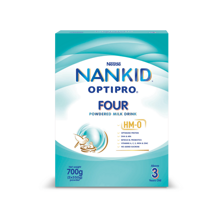
Reducing the Risk of Infectious Diseases in Children
By Anna Ong-Lim MD
Now more than ever, immunity has been a significant concern, and as such there has been a lot of interest in interventions that could reduce the risk of infectious disease, especially among children. But to address this issue, the first question that needs to be answered is, why are children at increased risk of infections?
One of the most frequently cited reasons for the increased susceptibility of children to infections is their developing immune system. Full function for the different elements of the immune system can take many years to achieve, with some components reaching final capacity only in late adolescence or adulthood 1
The environment where the child is raised can also play a role; for example, the risk of developing pneumonia can be increased by parental smoking, living in crowded homes, and indoor air pollution. 2
For diarrhea, a combination of risk factors, such as lack of access to clean water and hygiene, poor sanitation and malnutrition are identified. 3
With a better understanding of the reasons behind the problem, the question of what can be done to reduce the risk can be more readily answered. Practical infection prevention and control strategies focus on different aspects.4
- Sick children need to be identified early, with immediate isolation to control spread of infection;
- Care providers should be educated about the importance of hand, personal and environmental hygiene;
- Immunization of children and their caregivers can reduce the spread of vaccine preventable-diseases.
Although children are known to have an increased risk for infections, risk factors for the most common infections have been well studied, and there are specific strategies that can be implemented to reduce risk.
References:
1 [Georgountzou A, Papadopoulos NG. Frontiers in Immunology 2017; 8 (957) 1-16
2 [World Health Organization. Fact Sheet: Pneumonia].
3 [Webb C. Cabada MM. Current Tropical Medicine Reports. 2018; 5:31-40
4 [Koutlakis-Barron I. Hayden TA. International Journal of Pediatrics and Adolescent Medicine. 2016; 3(4): 143-152
Explore more expert articles below

















